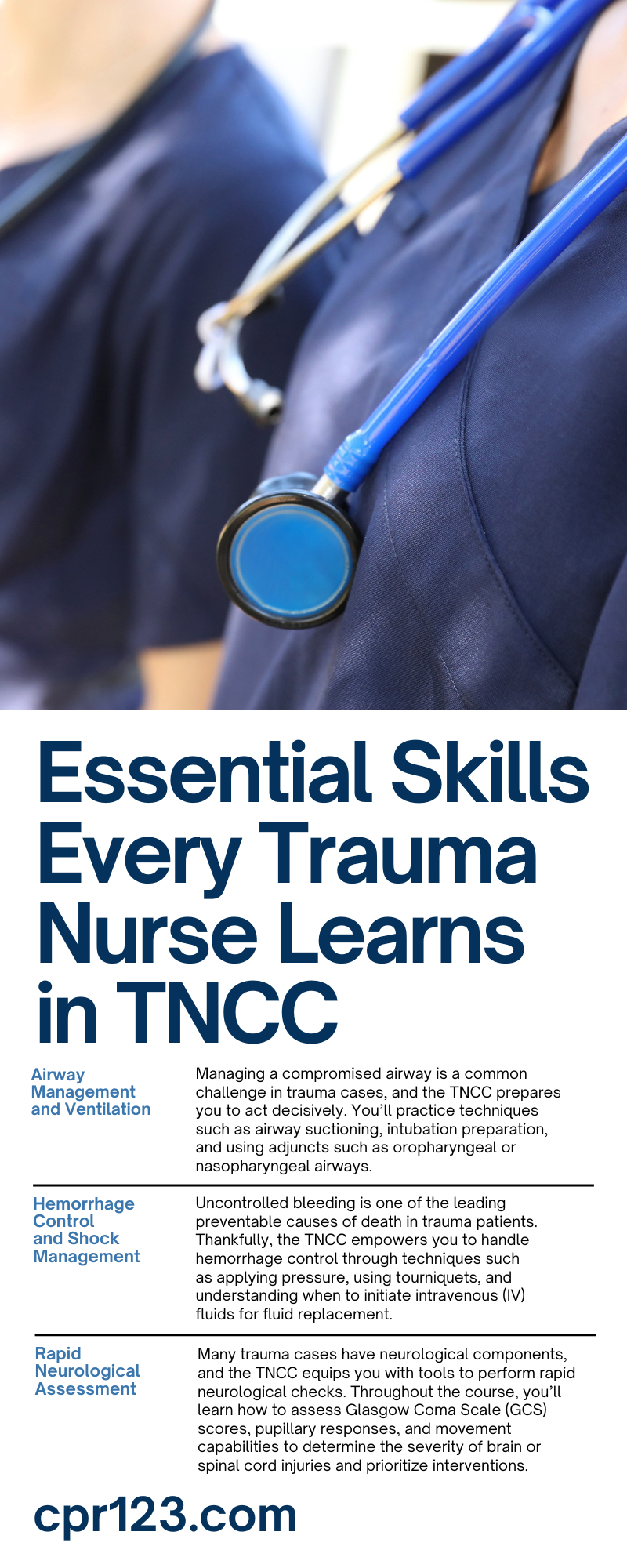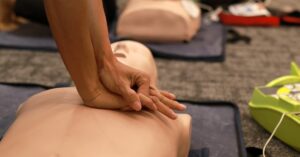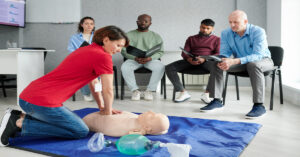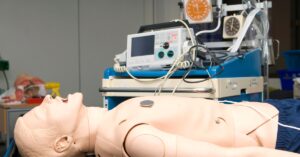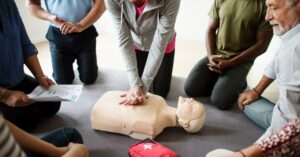Trauma cases often arrive without warning, putting immense pressure on nurses in emergency care environments. Whether the trauma came from a car accident, a domestic injury, or a life-threatening fall, nurses must have the skills to stabilize patients in their most vulnerable moments.
If you’ve signed up for the Trauma Nursing Core Course (TNCC) or are considering it, you’re taking a significant step toward becoming an expert in trauma care. Before you begin this lifesaving course, use this blog to understand the essential skills every trauma nurse learns in TNCC. By understanding the basics of the course before you begin, you can prepare yourself to successfully learn the material.
Understanding the TNCC
The TNCC, developed by the Emergency Nurses Association (ENA), is an internationally recognized course designed to enhance the skill set of trauma nurses. This trauma course for nurses provides a structured approach to trauma care by covering everything from patient assessment to physical intervention. Through the TNCC, you’ll develop the skills needed to work and collaborate efficiently within a high-pressure environment.
Primary and Secondary Trauma Assessments
In emergency trauma care, the first step is to identify potentially life-threatening conditions. The TNCC trains you to perform systematic primary assessments, focusing on the ABCDE framework:
- Airway maintenance with cervical spine protection
- Breathing and ventilation
- Circulation, including hemorrhage control
- Disability assessment of neurological function
- Exposure and environmental control
By following this structure, you make sure you don’t overlook critical injuries while treating your patient.
The secondary assessments focus on identifying other non-life-threatening injuries that still require urgent care. The TNCC will teach you to document findings, ask pertinent questions, and decide on the next steps for patients requiring specialized interventions such as imaging or surgery.
Think of the primary and secondary assessments as triage for trauma cases. They help you prioritize what needs immediate attention without putting the patient at risk.
Airway Management and Ventilation
Managing a compromised airway is a common challenge in trauma cases, and the TNCC prepares you to act decisively. You’ll practice techniques such as airway suctioning, intubation preparation, and using adjuncts such as oropharyngeal or nasopharyngeal airways.
Plus, you’ll learn to recognize signs of inadequate ventilation and select appropriate interventions such as supplemental oxygen or bag-valve-mask ventilation techniques. Since a blocked airway can reduce oxygen to vital organs, you must recognize these issues to prevent rapid patient deterioration.
Hemorrhage Control and Shock Management
Uncontrolled bleeding is one of the leading preventable causes of death in trauma patients. Thankfully, the TNCC empowers you to handle hemorrhage control through techniques such as applying pressure, using tourniquets, and understanding when to initiate intravenous (IV) fluids for fluid replacement.
In many trauma cases, shock is a common consequence often exacerbated by severe blood loss. During the TNCC, you’ll learn to identify the signs of different types of shock, including hypovolemic or distributive shock, and implement appropriate resuscitation strategies.
By practicing prompt hemorrhage control and effective shock management, you can prevent a downward spiral in seriously injured patients and guarantee their stability during transport or surgical care.
Rapid Neurological Assessment
Many trauma cases have neurological components, and the TNCC equips you with tools to perform rapid neurological checks. Throughout the course, you’ll learn how to assess Glasgow Coma Scale (GCS) scores, pupillary responses, and movement capabilities to determine the severity of brain or spinal cord injuries and prioritize interventions.
With timely intervention, you can prevent long-term damage from neurological injuries. Therefore, your ability to perform accurate assessments ensures patients receive prompt neurosurgical care if needed.
Effective Use of Imaging and Diagnostics
Trauma care often requires collaboration with radiology teams for imaging studies such as X-rays, CT scans, and ultrasounds. Taking the TNCC helps you interpret clinical clues and identify when such diagnostics are necessary.
Plus, the TNCC emphasizes point-of-care ultrasound (POCUS) training for assessing internal injuries, such as abdominal bleeding or cardiac tamponade, in real time. Understanding when and how to request diagnostics ensures that no injury is missed, reducing the risk of complications or delayed care.
Team Communication and Leadership
Trauma cases require flawless teamwork. In the TNCC, you’ll learn how to communicate effectively with physicians, surgeons, EMTs, and other nurses to ensure seamless transitions of care for your patients.
The TNCC also emphasizes leadership skills, preparing you to take charge during chaotic moments. Whether assigning tasks to colleagues or advocating for patients, you’ll gain the training you need to guide your team toward efficient, high-quality care.
By practicing good communication during trauma care, you’ll reduce errors and make sure everyone on the team knows exactly what needs to be done.
Specialized Pediatric and Geriatric Care
Both physiologically and anatomically, children and older adults often have unique needs, and the TNCC dedicates time to addressing these considerations.
You’ll learn techniques such as using age-appropriate equipment and dosages, recognizing atypical signs of distress, and managing cases of child abuse or elder neglect with compassion. By tailoring care to your patient’s stage of life, you’ll be able to guarantee that the most fragile patients get the care they deserve.
How the TNCC Prepares You for Real-Life Scenarios
Hands-on simulation goes beyond textbook learning, giving you the opportunity to work through real-life scenarios that mirror the unpredictability of trauma care.
Whether it’s a motorcycle accident with multiple fractures or a gunshot wound with severe blood loss, the TNCC gives you the opportunity to put your skills to the test in a controlled, supportive environment. These exercises build your confidence and prepare you to act decisively under pressure or time constraints.
Enroll in a Course Today
Now that you’ve explored the essential skills every trauma nurse learns in TNCC, you can prepare yourself for success. If you’re ready to take the next step in your nursing career, securing TNCC certification is a logical move that will help you prepare to face the complexities of trauma care head-on. Start by finding a certified course near you through CPR123.
Before you begin the course, consider brushing up on the basics of anatomy and physiology or reviewing case studies from trauma nursing journals. With a little extra preparation, you can deepen your understanding and effectively engage with the course material.
